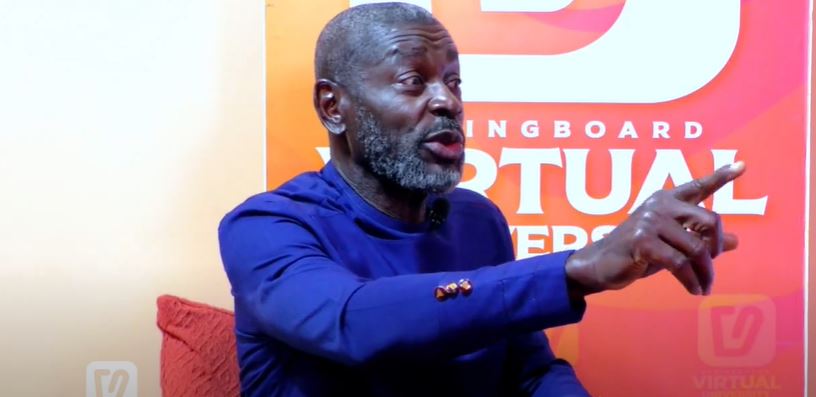The co-founder of the defunct Unique Trust (UT) Bank, Prince Kofi Amoabeng, has disclosed how he once took aggressive approaches to pursue loan defaulters to pay their debts.
According to him, most of the debtors failed to communicate their challenges to managers of the institution; hence, he used different means to force the defaulters to pay, a move he says helped the business to grow.
Whilst UT Bank was still in business, Kofi Amoabeng was criticised for the bank’s approach in getting defaulters to repay their loans. For critics, the approach was harassing.
But speaking to Albert Ocran on Springboard Virtual University on Sunday, he explained that it was important to be forceful as repayment of loans was not on the priority list of debtors.
The ex-military officer recounted how he confronted a debtor during his late mother's funeral over his unwillingness to repay the loan.
He explained that, that action was necessary because "we went to people who believed in our dream to beg them for their savings and lifetime earnings and we had promised them we would pay their monies back plus interests on it."
"If you are owing, at the time, I will confront you. One client I couldn't find, when my mother died, came there because he thought that was when I was at my weakest point and he was greeting; I saw him coming so I got up and said 'you know you owe me, stay here'."
"I think the least you should expect these borrowers to do is if something should go wrong, they should come back or call you and to discuss the issue but it is quite annoying and disrespectful to say the least, when after you've done that [given them loans] and it's time for them to pay, they just don't bother and we have to now find time and look for them," he stated.
Kofi Amoabeng noted that most of the customers who were 'chased' to pay their loans later acknowledged him for instilling some discipline in them.
He, however, expressed dissatisfaction over the attitude of some persons who "walk (ed) into offices to take loans knowing that they don't want to pay."
"Interestingly enough, some of my clients said I disciplined them when it comes to money and managing their businesses," he added.
Latest Stories
-
Education Minister opens CIHRM 2025 conference
1 hour -
The Pulse & Vbyz Experience: A Galdem DJ Mixtape
1 hour -
Kennedy Agyapong doesn’t need much marketing – Kwesi Kwarteng says ahead of NPP’s 2026 primaries
1 hour -
Maison Yusif shines on global stage at Barcelona Perfume Congress
2 hours -
Shirley Frimpong Manso is perfectionist and doesn’t compromise on that – Joselyn Dumas
2 hours -
We don’t celebrate our own enough – Shirley Frimpong-Manso to Ghanaians
2 hours -
Genesis Foundation launches campaign to tackle Teenage Drug Abuse on June 21
2 hours -
GII urges Mahama to match words with action on anti-corruption commitments
3 hours -
“I Needed to Speak”: Funke Akindele gets candid about loss and mental health
3 hours -
JoyPrime’s TroTro Diaries partners with COMAC to champion fuel quality and road safety
3 hours -
Clara Kukua Savage
3 hours -
GAFOSC in commanding form ahead of decisive UG Corporate League clash
4 hours -
99% of NPP Council members backed early presidential primary – Justin Kodua
4 hours -
Ablekuma North collation: Police playing funny games with us – NPP
4 hours -
Education Ministry orders nationwide audit over poor quality of SHS meals
4 hours

